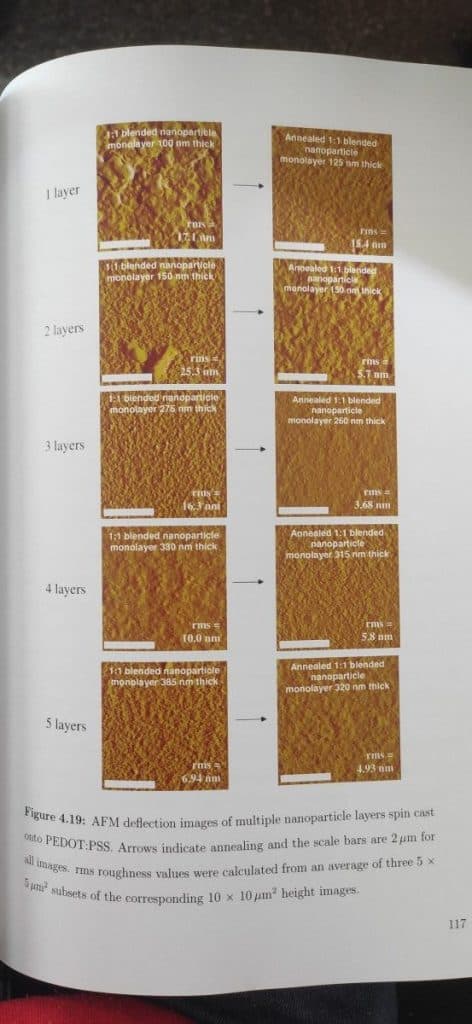

How long is a Thesis or Dissertation? [the data] PhD, Masters +
Writing a thesis for your undergraduate, master’s, or PhD can be a very daunting task. Especially when you consider how long a thesis can get. However, not all theses are the same length and the expected submission length is dependent on the level of study that you are currently enrolled in and the field in which you are studying.
An undergraduate thesis is likely to be about 20 to 50 pages long. A Master’s thesis is likely to be between 30 and 100 pages in length and a PhD dissertation is likely to be between 50 and 450 pages long.
In the table below I highlight the typical length of an undergraduate, master’s, and PhD.
It is important to note that this is highly dependent on the field of study and the expectations of your university, field, and research group.
If you want to know more about how long a Masters thesis and PhD dissertation is you can check out my other articles:
- How Long is a Masters Thesis? [Your writing guide]
- How long is a PhD dissertation? [Data by field]
- How to write a masters thesis in 2 months [Easy steps to start writing]
These articles go into a lot more detail and specifics of each level of study, including master’s and doctoral degrees.
Let’s take a more detailed look at the length of a thesis or dissertation. We’ll start from the very basics including what a dissertation or thesis really is.
What exactly is a thesis or a dissertation?
A thesis or a dissertation is a research project that is typically required of students in order to gain an advanced degree.
A dissertation is usually much longer and more detailed than a thesis, but they both involve extensive research and provide an in-depth analysis of their given subject.
Many people use the term interchangeably but quite often a Masters level research project results in a thesis. While a PhD research project results in a much longer dissertation.
Thesis work is usually completed over the course of several months and can require multiple drafts and revisions before being accepted. These will be looked over by your supervisor to ensure that you are meeting the expectations and standards of your research field.
PhD Dissertations are typically even more involved, taking years to complete. My PhD took me three years to complete but it is usual for them to take more than five years.
Both a thesis and a dissertation involve researching a particular topic, formulating an argument based on evidence gathered from the research, and presenting the findings in written form for review by peers or faculty members.
My Master’s thesis was reviewed by the chemistry Department whilst my PhD thesis was sent to experts in the field around the world.
Ultimately, these experts provide a commentary on whether or not you have reached the standards required of the University for admittance into the degree and the final decision will be made upon reviewing these comments by your universities graduation committee.
There are several outcomes including:
- accepted without changes – this is where you must make no changes to your thesis and is accepted as is.
- accepted with minor changes this is where your thesis will require some minor changes before being admitted to the degree. Usually, it is not sent back to the reviewers after the thesis defence.
- Major changes – this is where the committee has decided that you need to rework a number of major themes in your thesis and will likely want to see it at a later stage.
- Rejected – this is where the dissertation or thesis is rejected and the recommendation to downgrade your degree program is made.
What is the typical length of a thesis or dissertation?
The length of a thesis or dissertation varies significantly according to the field of study and institution, especially in social sciences.
Generally, an undergraduate thesis is between 20-50 pages long while a PhD dissertation can range from 90-500 pages in length.
However, longer is not necessarily better as a highly mathematical PhD thesis with proofs may only be 50 pages long.
It also depends on the complexity of the topic being studied and the amount of research required to complete it.
A PhD dissertation should contain as many pages and words as it takes to outline the current state of your field and provide adequate background information, present your results, and provide confidence in your conclusions. A PhD dissertation will also contain figures, graphs, schematics, and other large pictorial items that can easily inflate the page count.
Here is a boxplot summary of many different fields of study and the number of pages of a typical PhD dissertation in the field, including social sciences. It has been created by Marcus Beck from all of the dissertations at the University of Minnesota.

Typically, the mathematical sciences, economics, and biostatistics theses and dissertations tend to be shorter because they rely on mathematical formulas to provide proof of their results rather than diagrams and long explanations.
On the other end of the scale, English, communication studies, political science, history and anthropology are often the largest theses in terms of pages and word count because of the number of words it takes to provide proof and depth of their results.
At the end of the day, it is important that your thesis gets signed off by your review committee and other experts in the field. Your supervisor will be the main judge of whether or not your dissertation is capable of satisfying the requirements of a master’s or doctoral degree in your field.
How Many Pages Should a Master or PhD Thesis Have? Length of a thesis?
The length of a master’s thesis can vary greatly depending on the subject and format.
Generally, a masters thesis is expected to be around 100 pages long and should include:
- a title page,
- table of contents,
- introduction,
- literature review,
- main test and body of work,
- discussions and citations,
- conclusion,
- bibliography
- and (sometimes) appendix.
Your supervisor should provide you with a specific format for your dissertation or thesis that you are expected to follow.
Depending on your field of study and the word count specified by your supervisor, these guidelines may change. The student must ask their advisor for examples of past student thesis and doctoral dissertations.
For example, if there is a limited number of words allowed in the thesis then it may not be possible to have 100 pages or more for the thesis.
Additionally, if you are including a lot of technical information such as diagrams or tables in the appendix of your dissertation or thesis, then this could increase the page count as well. For example, my PhD thesis contained a page like the one below.
This page only contains images from atomic force microscopy. Because my PhD was very visual, many pages like this exist.

Ultimately it is important to consult with your supervisor and determine how many pages your master’s thesis or PhD dissertation will be expected to have.
How long does it take to write a graduate thesis? Write your thesis quickly
Writing a graduate thesis can be a daunting task.
It is typically expected to take anywhere from one to three years, depending on the subject and scope of the project.
However, this is not just writing. A typical thesis or dissertation will require you to:
- formulate a research question
- do a literature review
- create research methodology
- perform original research
- collect and analyse results
- write peer-reviewed research papers
- write a PhD/masters thesis
- submit thesis and respond to examiners comments.
The actual writing component of a thesis or dissertation can take anywhere from one month to 6 months depending on how focused the PhD student is.
The amount of time it takes to write a thesis or dissertation can vary based on many factors, such as the type of research required, the length of the project, and other commitments that may interfere with progress.
Some students may have difficulty focusing or understanding their topic which can also add to the amount of time it takes to complete the project.
Regardless, writing a thesis is an important part of obtaining a graduate degree and should not be taken lightly.
It requires dedication and determination in order for one to successfully complete a thesis or dissertation within an appropriate timeframe.
In my YouTube video, below, I talk about how to finish your thesis or dissertation quickly:
It is full of a load of secrets including owning your day, managing your supervisor relationship, setting many goals, progress over perfection, and working with your own body clock to maximise productivity.
Wrapping up
This article has been through everything you need to know about the typical length of a dissertation or thesis.
The answer to this question is highly dependent on your field of study and the expectations of your supervisor and university.
Frequently Asked Questions: How Long is a Thesis
How long is a thesis.
A thesis is typically a document submitted in support of an academic degree, presenting the author’s research and findings. The length of a thesis can vary depending on the level of study and specific requirements of the institution. It can range from 60 – 100 pages for a master’s thesis to several hundred pages for a doctoral dissertation.
What is the difference between a thesis and a dissertation?
While the terms thesis and dissertation are often used interchangeably, they can have different meanings depending on the region or academic context. In some countries, a thesis is associated with a bachelor’s or master’s degree, while a dissertation is typically required for a doctoral degree.
Is there a specific word count for a thesis?
While there is no universal word count for a thesis , institutions may provide guidelines on the expected length based on the type of degree and academic discipline. It’s essential to adhere to the specified word count to meet academic standards.
How does the length of a thesis vary across different fields of study?
The length of a thesis can differ based on the field of study and the nature of the research being conducted. For example, a thesis in the social sciences may be shorter compared to one in a scientific or technical field that requires extensive data analysis and documentation.

Dr Andrew Stapleton has a Masters and PhD in Chemistry from the UK and Australia. He has many years of research experience and has worked as a Postdoctoral Fellow and Associate at a number of Universities. Although having secured funding for his own research, he left academia to help others with his YouTube channel all about the inner workings of academia and how to make it work for you.
Thank you for visiting Academia Insider.
We are here to help you navigate Academia as painlessly as possible. We are supported by our readers and by visiting you are helping us earn a small amount through ads and affiliate revenue - Thank you!

2024 © Academia Insider

- 1-888-SNU-GRAD
- Daytime Classes

The 8 Most Asked Questions About Dissertations

A Ph.D. represents the highest level of education in most fields. People who earn this degree earn the honorific of “doctor” and are considered experts in their field. A doctoral degree is often a prerequisite for teaching at the highest levels in academia or ascending career ladders in education, the government and the nonprofit space.
In 2020 , doctoral degree holders had median weekly earnings of $1,885 and an unemployment rate of 2.5%—lower than any other group. And yet, the dissertation is often a major barrier to completing a doctorate and realizing its many financial and personal benefits.
So what is a dissertation, and what role does it play in your educational trajectory? At SNU, we value exceptional dissertations and integrate the writing process into your coursework. Here are the most common questions we hear about writing dissertations and earning your doctorate.
1. What is a dissertation?
A dissertation is a published piece of academic research. Through your dissertation research , you become an expert in a specific academic niche. After writing your dissertation, you then defend it to a committee of experts in the field. A dissertation is integral to the process of earning a doctoral degree, contributing innovative ideas to your chosen field. Until you have written, published and defended a dissertation, you can’t graduate from a doctoral-level program.
2. Why are dissertations so important?
Dissertations are the crucial piece of research in most doctoral-level programs. The process of writing, researching and amending the dissertation serves several important goals:
- It contributes novel research to the field, supporting innovation, growth and ongoing scholarship.
- It requires students to write a substantive piece of academic research across many semesters, sharpening research skills and expertise.
- It demands that s tudents defend their research, ensuring strong communication and critical thinking skills.
- It requires deep, comprehensive research—including a literature review—improving reading comprehension and writing skills.
- It is a challenging project that serves as a test of the skills you might use as an academic professional in your chosen field.
- It helps establish new members of an academic discipline as contributors to the field.
- It fosters academic connections as you interview sources and defend your work.
3. Why do so many students struggle with the dissertation?
The dissertation process is difficult. However, this difficulty establishes the credibility of doctoral degrees, proving that the student can commit to long-term, intensive research and become a true subject-matter expert.
However, for many adult learners, the dissertation proves especially challenging thanks to work-life balance difficulties, financial constraints and lack of family or institutional support. At SNU, we know that a dissertation is critical to your growth as an academic. But we also know that institutional support can make a big difference in your ability to finish this impressive work. That’s why we integrate dissertation writing into our curriculum, rather than leaving you to do it all on your own time.
One study suggests that more than half of students never complete their dissertation. Other research indicates that academic reforms that help students with their work reduce dropout rates, ensuring more students complete their dissertation and earn the coveted title of doctor.
4. How long is a dissertation?
Most dissertations are 100 pages or longer — roughly the length of a book. The specific length of your dissertation depends on the type of research, how much research exists in the field and similar factors. The goal of dissertation writing is not to attain a specific length, but to be comprehensive and thoughtful. It anticipates and answers potential objections, gives appropriate credit to the source materials and reviews prior work in the field.
Your dissertation review committee is more interested in a comprehensive dissertation that displays your critical thinking and research skills than they are in a dissertation of a specific length. Excessive wordiness without value wastes a reader’s time.
The right length for a dissertation depends on several factors:
- How much research already exists in the field?
- What field are you publishing in?
- What type of research are you doing?
- Is your research controversial?
- How much space do you need to explain your research and address objections?
Put simply: A dissertation should be long enough to comprehensively cover the subject, but no longer.
5. How do you write a dissertation?
In general, the dissertation process follows this schedule:
- Research the field and identify potential topics.
- Meet with an advisor to choose and improve a topic.
- Perform a literature review.
- Conduct new research.
- Write the dissertation.
- Edit the dissertation.
- Defend the dissertation.
Each step involves weeks to months of work and many phases of revision, reevaluation and research. At SNU, we incorporate many phases of the writing and research process into your coursework. This ensures you are on track to graduate and addresses dissertation writing challenges before they snowball into a serious problem.
6. When should you start writing a dissertation?
The dissertation writing process should begin almost as soon as you enroll in school. That doesn’t necessarily mean you need to have content written on your first day of class. Instead, you will need to engage in substantive pre-writing that includes:
- Familiarizing yourself with relevant research in the field.
- Developing an opinion on recent research.
- Designing your research to address a clear and narrowly defined topic.
As you hone in on your topic, you can begin the writing and research portion of the project. In most cases, this starts within a semester or two of enrollment. A dissertation is not something you can leave until the last semester or shortly before graduation. SNU ensures this doesn’t happen by integrating the writing process into your coursework. You will start working on your dissertation early, preventing you from becoming overwhelmed.
7. How do you cite a dissertation?
A dissertation is a published scholarly work. Each style manual has specific instructions for citing a dissertation, so be sure to consult the style manual you’re using.
You can cite other dissertations in your dissertation. In many cases, dissertations can provide useful starting points for your research. The literature reviews they contain may also help with your literature review.
8. How do you choose a school for your dissertation?
Choosing the right school for your dissertation can mean the difference between finishing this scholarly work and languishing at the dreaded “ all-but-dissertation” (ABD) stage . SNU specializes in supporting adult learners by encouraging intensive research and protecting your work-life balance.
At SNU, your dissertation is a part of your coursework . You will get support from start to finish, including a dissertation advisor who is an expert in your chosen field. We are here for you, and we want to see you succeed.

Want to learn more about SNU's programs?
Request more information.
Have questions about SNU, our program, or how we can help you succeed. Fill out the form and an enrollment counselor will reach out to you soon!
Subscribe to the SNU blog for inspirational articles and tips to support you on your journey back to school.
Recent blog articles.


Adult Education
The Value of Military Experience in the College Classroom

Leveraging Military Experience in Criminal Justice

Veteran Students
From Boot Camp to Bit Camp: A Guide to Cybersecurity for Vets

Empowering Educators: The Essential Role of Teacher Support
Have questions about SNU or need help determining which program is the right fit? Fill out the form and an enrollment counselor will follow-up to answer your questions!
Text With an Enrollment Counselor
Have questions, but want a faster response? Fill out the form and one of our enrollment counselors will follow-up via text shortly!

Tips for writing a PhD dissertation: FAQs answered
From how to choose a topic to writing the abstract and managing work-life balance through the years it takes to complete a doctorate, here we collect expert advice to get you through the PhD writing process
Campus team
Additional links.

You may also like

Popular resources
.css-1txxx8u{overflow:hidden;max-height:81px;text-indent:0px;} Emotions and learning: what role do emotions play in how and why students learn?
Sharpen your students’ interview skills, an on-campus primary school helped to enrich the community, decolonising the curriculum – how do i get started, artificial intelligence and academic integrity: striking a balance.
Embarking on a PhD is “probably the most challenging task that a young scholar attempts to do”, write Mark Stephan Felix and Ian Smith in their practical guide to dissertation and thesis writing. After years of reading and research to answer a specific question or proposition, the candidate will submit about 80,000 words that explain their methods and results and demonstrate their unique contribution to knowledge. Here are the answers to frequently asked questions about writing a doctoral thesis or dissertation .
What’s the difference between a dissertation and a thesis?
Whatever the genre of the doctorate, a PhD must offer an original contribution to knowledge. The terms “dissertation” and “thesis” both refer to the long-form piece of work produced at the end of a research project and are often used interchangeably. Which one is used might depend on the country, discipline or university. In the UK, “thesis” is generally used for the work done for a PhD, while a “dissertation” is written for a master’s degree. The US did the same until the 1960s, says Oxbridge Essays, when the convention switched, and references appeared to a “master’s thesis” and “doctoral dissertation”. To complicate matters further, undergraduate long essays are also sometimes referred to as a thesis or dissertation.
The Oxford English Dictionary defines “thesis” as “a dissertation, especially by a candidate for a degree” and “dissertation” as “a detailed discourse on a subject, especially one submitted in partial fulfilment of the requirements of a degree or diploma”.
- Ten platinum rules for PhD supervisors
- Fostering freedom in PhD students: how supervisors can shape accessible paths for doctoral research
- Lessons from students on effective research supervision
The title “doctor of philosophy”, incidentally, comes from the degree’s origins, write Dr Felix, an associate professor at Mahidol University in Thailand, and Dr Smith, retired associate professor of education at the University of Sydney , whose co-authored guide focuses on the social sciences. The PhD was first awarded in the 19th century by the philosophy departments of German universities, which at that time taught science, social science and liberal arts.
How long should a PhD thesis be?
A PhD thesis (or dissertation) is typically 60,000 to 120,000 words ( 100 to 300 pages in length ) organised into chapters, divisions and subdivisions (with roughly 10,000 words per chapter) – from introduction (with clear aims and objectives) to conclusion.
The structure of a dissertation will vary depending on discipline (humanities, social sciences and STEM all have their own conventions), location and institution. Examples and guides to structure proliferate online. The University of Salford , for example, lists: title page, declaration, acknowledgements, abstract, table of contents, lists of figures, tables and abbreviations (where needed), chapters, appendices and references.
A scientific-style thesis will likely need: introduction, literature review, materials and methods, results, discussion, bibliography and references.
As well as checking the overall criteria and expectations of your institution for your research, consult your school handbook for the required length and format (font, layout conventions and so on) for your dissertation.
A PhD takes three to four years to complete; this might extend to six to eight years for a part-time doctorate.
What are the steps for completing a PhD?
Before you get started in earnest , you’ll likely have found a potential supervisor, who will guide your PhD journey, and done a research proposal (which outlines what you plan to research and how) as part of your application, as well as a literature review of existing scholarship in the field, which may form part of your final submission.
In the UK, PhD candidates undertake original research and write the results in a thesis or dissertation, says author and vlogger Simon Clark , who posted videos to YouTube throughout his own PhD journey . Then they submit the thesis in hard copy and attend the viva voce (which is Latin for “living voice” and is also called an oral defence or doctoral defence) to convince the examiners that their work is original, understood and all their own. Afterwards, if necessary, they make changes and resubmit. If the changes are approved, the degree is awarded.
The steps are similar in Australia , although candidates are mostly assessed on their thesis only; some universities may include taught courses, and some use a viva voce. A PhD in Australia usually takes three years full time.
In the US, the PhD process begins with taught classes (similar to a taught master’s) and a comprehensive exam (called a “field exam” or “dissertation qualifying exam”) before the candidate embarks on their original research. The whole journey takes four to six years.
A PhD candidate will need three skills and attitudes to get through their doctoral studies, says Tara Brabazon , professor of cultural studies at Flinders University in Australia who has written extensively about the PhD journey :
- master the academic foundational skills (research, writing, ability to navigate different modalities)
- time-management skills and the ability to focus on reading and writing
- determined motivation to do a PhD.

How do I choose the topic for my PhD dissertation or thesis?
It’s important to find a topic that will sustain your interest for the years it will take to complete a PhD. “Finding a sustainable topic is the most important thing you [as a PhD student] would do,” says Dr Brabazon in a video for Times Higher Education . “Write down on a big piece of paper all the topics, all the ideas, all the questions that really interest you, and start to cross out all the ones that might just be a passing interest.” Also, she says, impose the “Who cares? Who gives a damn?” question to decide if the topic will be useful in a future academic career.
The availability of funding and scholarships is also often an important factor in this decision, says veteran PhD supervisor Richard Godwin, from Harper Adams University .
Define a gap in knowledge – and one that can be questioned, explored, researched and written about in the time available to you, says Gina Wisker, head of the Centre for Learning and Teaching at the University of Brighton. “Set some boundaries,” she advises. “Don’t try to ask everything related to your topic in every way.”
James Hartley, research professor in psychology at Keele University, says it can also be useful to think about topics that spark general interest. If you do pick something that taps into the zeitgeist, your findings are more likely to be noticed.
You also need to find someone else who is interested in it, too. For STEM candidates , this will probably be a case of joining a team of people working in a similar area where, ideally, scholarship funding is available. A centre for doctoral training (CDT) or doctoral training partnership (DTP) will advertise research projects. For those in the liberal arts and social sciences, it will be a matter of identifying a suitable supervisor .
Avoid topics that are too broad (hunger across a whole country, for example) or too narrow (hunger in a single street) to yield useful solutions of academic significance, write Mark Stephan Felix and Ian Smith. And ensure that you’re not repeating previous research or trying to solve a problem that has already been answered. A PhD thesis must be original.
What is a thesis proposal?
After you have read widely to refine your topic and ensure that it and your research methods are original, and discussed your project with a (potential) supervisor, you’re ready to write a thesis proposal , a document of 1,500 to 3,000 words that sets out the proposed direction of your research. In the UK, a research proposal is usually part of the application process for admission to a research degree. As with the final dissertation itself, format varies among disciplines, institutions and countries but will usually contain title page, aims, literature review, methodology, timetable and bibliography. Examples of research proposals are available online.
How to write an abstract for a dissertation or thesis
The abstract presents your thesis to the wider world – and as such may be its most important element , says the NUI Galway writing guide. It outlines the why, how, what and so what of the thesis . Unlike the introduction, which provides background but not research findings, the abstract summarises all sections of the dissertation in a concise, thorough, focused way and demonstrates how well the writer understands their material. Check word-length limits with your university – and stick to them. About 300 to 500 words is a rough guide – but it can be up to 1,000 words.
The abstract is also important for selection and indexing of your thesis, according to the University of Melbourne guide , so be sure to include searchable keywords.
It is the first thing to be read but the last element you should write. However, Pat Thomson , professor of education at the University of Nottingham , advises that it is not something to be tackled at the last minute.
How to write a stellar conclusion
As well as chapter conclusions, a thesis often has an overall conclusion to draw together the key points covered and to reflect on the unique contribution to knowledge. It can comment on future implications of the research and open up new ideas emanating from the work. It is shorter and more general than the discussion chapter , says online editing site Scribbr, and reiterates how the work answers the main question posed at the beginning of the thesis. The conclusion chapter also often discusses the limitations of the research (time, scope, word limit, access) in a constructive manner.
It can be useful to keep a collection of ideas as you go – in the online forum DoctoralWriting SIG , academic developer Claire Aitchison, of the University of South Australia , suggests using a “conclusions bank” for themes and inspirations, and using free-writing to keep this final section fresh. (Just when you feel you’ve run out of steam.) Avoid aggrandising or exaggerating the impact of your work. It should remind the reader what has been done, and why it matters.
How to format a bibliography (or where to find a reliable model)
Most universities use a preferred style of references , writes THE associate editor Ingrid Curl. Make sure you know what this is and follow it. “One of the most common errors in academic writing is to cite papers in the text that do not then appear in the bibliography. All references in your thesis need to be cross-checked with the bibliography before submission. Using a database during your research can save a great deal of time in the writing-up process.”
A bibliography contains not only works cited explicitly but also those that have informed or contributed to the research – and as such illustrates its scope; works are not limited to written publications but include sources such as film or visual art.
Examiners can start marking from the back of the script, writes Dr Brabazon. “Just as cooks are judged by their ingredients and implements, we judge doctoral students by the calibre of their sources,” she advises. She also says that candidates should be prepared to speak in an oral examination of the PhD about any texts included in their bibliography, especially if there is a disconnect between the thesis and the texts listed.
Can I use informal language in my PhD?
Don’t write like a stereotypical academic , say Kevin Haggerty, professor of sociology at the University of Alberta , and Aaron Doyle, associate professor in sociology at Carleton University , in their tongue-in-cheek guide to the PhD journey. “If you cannot write clearly and persuasively, everything about PhD study becomes harder.” Avoid jargon, exotic words, passive voice and long, convoluted sentences – and work on it consistently. “Writing is like playing guitar; it can improve only through consistent, concerted effort.”
Be deliberate and take care with your writing . “Write your first draft, leave it and then come back to it with a critical eye. Look objectively at the writing and read it closely for style and sense,” advises THE ’s Ms Curl. “Look out for common errors such as dangling modifiers, subject-verb disagreement and inconsistency. If you are too involved with the text to be able to take a step back and do this, then ask a friend or colleague to read it with a critical eye. Remember Hemingway’s advice: ‘Prose is architecture, not interior decoration.’ Clarity is key.”
How often should a PhD candidate meet with their supervisor?
Since the PhD supervisor provides a range of support and advice – including on research techniques, planning and submission – regular formal supervisions are essential, as is establishing a line of contact such as email if the candidate needs help or advice outside arranged times. The frequency varies according to university, discipline and individual scholars.
Once a week is ideal, says Dr Brabazon. She also advocates a two-hour initial meeting to establish the foundations of the candidate-supervisor relationship .
The University of Edinburgh guide to writing a thesis suggests that creating a timetable of supervisor meetings right at the beginning of the research process will allow candidates to ensure that their work stays on track throughout. The meetings are also the place to get regular feedback on draft chapters.
“A clear structure and a solid framework are vital for research,” writes Dr Godwin on THE Campus . Use your supervisor to establish this and provide a realistic view of what can be achieved. “It is vital to help students identify the true scientific merit, the practical significance of their work and its value to society.”
How to proofread your dissertation (what to look for)
Proofreading is the final step before printing and submission. Give yourself time to ensure that your work is the best it can be . Don’t leave proofreading to the last minute; ideally, break it up into a few close-reading sessions. Find a quiet place without distractions. A checklist can help ensure that all aspects are covered.
Proofing is often helped by a change of format – so it can be easier to read a printout rather than working off the screen – or by reading sections out of order. Fresh eyes are better at spotting typographical errors and inconsistencies, so leave time between writing and proofreading. Check with your university’s policies before asking another person to proofread your thesis for you.
As well as close details such as spelling and grammar, check that all sections are complete, all required elements are included , and nothing is repeated or redundant. Don’t forget to check headings and subheadings. Does the text flow from one section to another? Is the structure clear? Is the work a coherent whole with a clear line throughout?
Ensure consistency in, for example, UK v US spellings, capitalisation, format, numbers (digits or words, commas, units of measurement), contractions, italics and hyphenation. Spellchecks and online plagiarism checkers are also your friend.

How do you manage your time to complete a PhD dissertation?
Treat your PhD like a full-time job, that is, with an eight-hour working day. Within that, you’ll need to plan your time in a way that gives a sense of progress . Setbacks and periods where it feels as if you are treading water are all but inevitable, so keeping track of small wins is important, writes A Happy PhD blogger Luis P. Prieto.
Be specific with your goals – use the SMART acronym (specific, measurable, attainable, relevant and timely).
And it’s never too soon to start writing – even if early drafts are overwritten and discarded.
“ Write little and write often . Many of us make the mistake of taking to writing as one would take to a sprint, in other words, with relatively short bursts of intense activity. Whilst this can prove productive, generally speaking it is not sustainable…In addition to sustaining your activity, writing little bits on a frequent basis ensures that you progress with your thinking. The comfort of remaining in abstract thought is common; writing forces us to concretise our thinking,” says Christian Gilliam, AHSS researcher developer at the University of Cambridge ’s Centre for Teaching and Learning.
Make time to write. “If you are more alert early in the day, find times that suit you in the morning; if you are a ‘night person’, block out some writing sessions in the evenings,” advises NUI Galway’s Dermot Burns, a lecturer in English and creative arts. Set targets, keep daily notes of experiment details that you will need in your thesis, don’t confuse writing with editing or revising – and always back up your work.
What work-life balance tips should I follow to complete my dissertation?
During your PhD programme, you may have opportunities to take part in professional development activities, such as teaching, attending academic conferences and publishing your work. Your research may include residencies, field trips or archive visits. This will require time-management skills as well as prioritising where you devote your energy and factoring in rest and relaxation. Organise your routine to suit your needs , and plan for steady and regular progress.
How to deal with setbacks while writing a thesis or dissertation
Have a contingency plan for delays or roadblocks such as unexpected results.
Accept that writing is messy, first drafts are imperfect, and writer’s block is inevitable, says Dr Burns. His tips for breaking it include relaxation to free your mind from clutter, writing a plan and drawing a mind map of key points for clarity. He also advises feedback, reflection and revision: “Progressing from a rough version of your thoughts to a superior and workable text takes time, effort, different perspectives and some expertise.”
“Academia can be a relentlessly brutal merry-go-round of rejection, rebuttal and failure,” writes Lorraine Hope , professor of applied cognitive psychology at the University of Portsmouth, on THE Campus. Resilience is important. Ensure that you and your supervisor have a relationship that supports open, frank, judgement-free communication.
If you would like advice and insight from academics and university staff delivered direct to your inbox each week, sign up for the Campus newsletter .
Authoring a PhD Thesis: How to Plan, Draft, Write and Finish a Doctoral Dissertation (2003), by Patrick Dunleavy
Writing Your Dissertation in Fifteen Minutes a Day: A Guide to Starting, Revising, and Finishing Your Doctoral Thesis (1998), by Joan Balker
Challenges in Writing Your Dissertation: Coping with the Emotional, Interpersonal, and Spiritual Struggles (2015), by Noelle Sterne
Emotions and learning: what role do emotions play in how and why students learn?
A new collaboration will see oxford saïd foster future chinese leaders through mba scholarships, how to bring indigenous knowledge into university classrooms, how to prepare students for a global working world, how to address bias in the classroom and in assessment, bringing the human touch into the virtual classroom.
Register for free
and unlock a host of features on the THE site

IMAGES
VIDEO
COMMENTS
How long should a dissertation introduction be? The unofficial rule is 10 percent of the entire paper , so if your dissertation is 20,000 words, your introduction should be about 2,000 words. Keep in mind this is a rough estimate, as your introduction could vary.
How long is a dissertation? Dissertation word counts vary widely across different fields, institutions, and levels of education: An undergraduate dissertation is typically 8,000–15,000 words; A master’s dissertation is typically 12,000–50,000 words; A PhD thesis is typically book-length: 70,000–100,000 words
An undergraduate thesis is likely to be about 20 to 50 pages long. A Master’s thesis is likely to be between 30 and 100 pages in length and a PhD dissertation is likely to be between 50 and 450 pages long. In the table below I highlight the typical length of an undergraduate, master’s, and PhD.
How long is a dissertation? Most dissertations are 100 pages or longer — roughly the length of a book. The specific length of your dissertation depends on the type of research, how much research exists in the field and similar factors.
How long should a PhD thesis be? A PhD thesis (or dissertation) is typically 60,000 to 120,000 words (100 to 300 pages in length) organised into chapters, divisions and subdivisions (with roughly 10,000 words per chapter) – from introduction (with clear aims and objectives) to conclusion.
There is no set minimum or maximum length, but anything below about 225 pages will likely look insubstantial in comparison to others, while anything over 350 pages may suggest a lack of proportion and control of the topic, and would probably take too long to write.